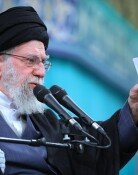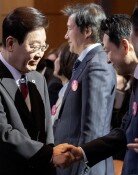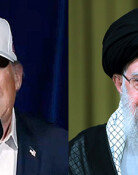Yoon should more eagerly embrace wartime victims while pressuring Japan further
Yoon should more eagerly embrace wartime victims while pressuring Japan further
Posted March. 08, 2023 07:46,
Updated March. 08, 2023 07:47
President Yoon Suk Yeol said in the Cabinet meeting on Tuesday that the plan to compensate its own citizens who are the victims of Japan's wartime forced labor was a result of profound consideration to address both the stance of the victims and the mutually-beneficial, forward-looking relations between South Korea and Japan. President Yoon stressed that the decision was made from a future-oriented and broader perspective to resolve hindering grievances between the two nations. However, the victims in question, civil activists, and opposition parties declared through an emergency statement that the proposal is null and void and that they would hold signature gathering campaigns and protests condemning the decision.
The South Korean government must have decided to compensate the victims through its own companies after considering all the possible backlashes, including Japan's less-than-enthusiastic reaction and fierce domestic opposition from political opponents and the victims themselves. President Yoon was reportedly firm and determined to proceed with the plan without any more delays despite concerns and criticism within the government. The South Korean government is underscoring that it was a strategic judgment because the long-standing grievance must be resolved between the two countries when South Korea-U.S.-Japan cooperation is in urgent need to deter increasing North Korean nuclear threats.
Japan's response to South Korea's preemptive proposal, however, is hugely disappointing. Japan made no further concessions even when our government called for a more genuine and bolder political decision until the last minute from the Japanese government that insisted on offering indirect solutions without sincere apology and compensation. Such reaction by Japan understandably made Korean people raise doubts that their government was too hasty in crafting the plan and angered victims who say they won't take money, which seemed like the result of begging.
As the South Korean government underlined, the proposal unveiled this time is not the end but the beginning of resolving the grievance. We have just embarked on a longwinded and challenging journey to normalize the ties while leaving behind historical resentment that hindered the relations between the two nations. We must be more persistent and meticulous in achieving our aim because the decision was made amid fierce opposition and criticism. We must double the efforts, particularly in pacifying the victims and seeking their understanding. The scar and resentment inflicted by the horrendous historical past can never be healed or resolved easily. The bigger the opposition, the readier the government should be in embracing their hurt.
On top of that, the Yoon administration should push the Japanese counterpart to develop more comprehensive and forward-looking measures. The South Korean government is reportedly expecting more genuine changes in Japan's attitude, with Yoon's upcoming visit to Japan in mid-March, a state visit to the U.S. in April, and attendance at the G7 Summit meeting in May as momentum. The moment starts when the government should exert itself in diplomacy to help support the suffering victims and soothe resentful citizens.







